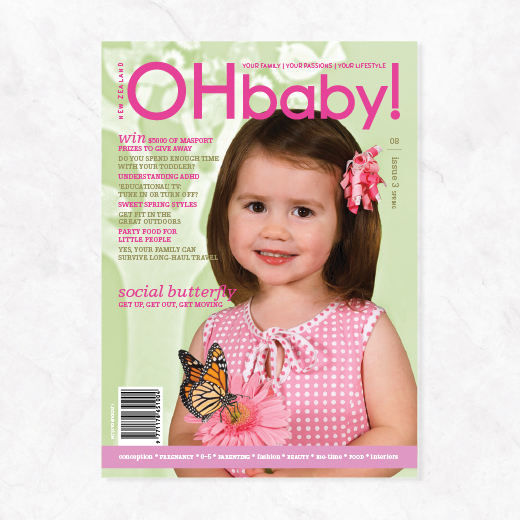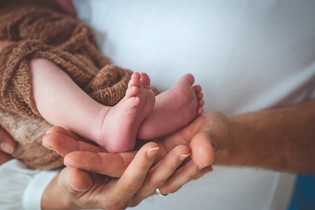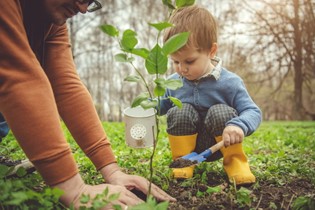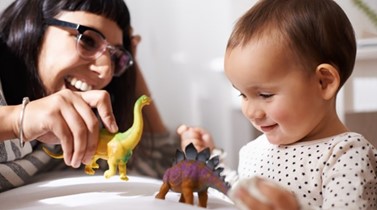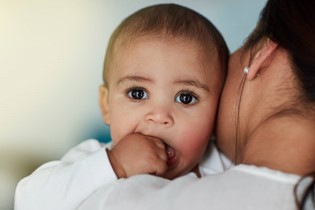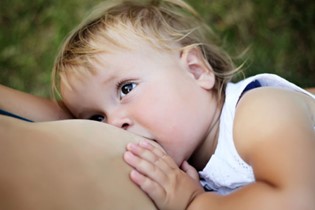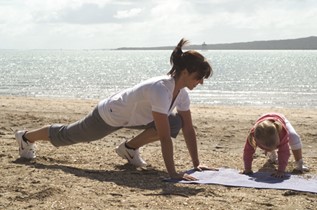How much time should we spend interacting with our toddlers?
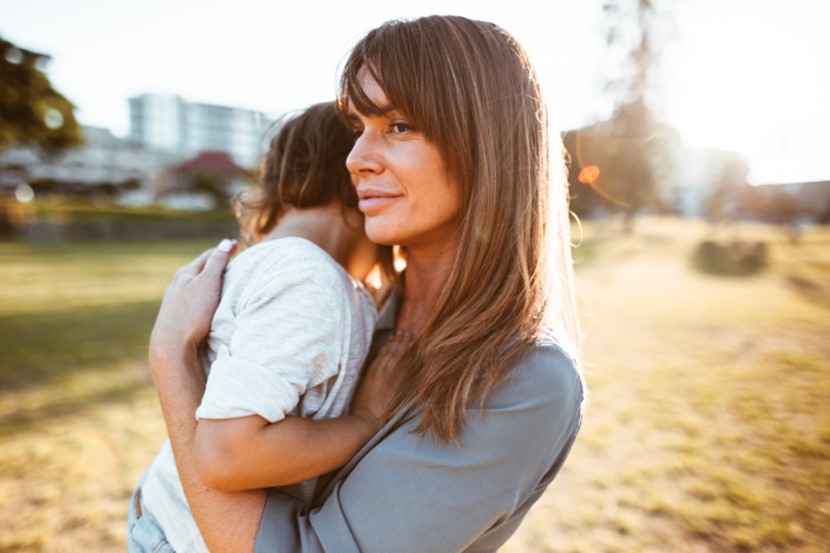
Modern parents are constantly pressured by expectations placed on early childhood learning. How much time should we spend interacting with our toddlers? Are our children smothered by too much attention? Angela Frieswyk looks for answers.
Exhausted and exhilarated after the birth of my first daughter, I still felt compelled to read every bit of parenting paraphernalia strategically placed around the maternity annex. After all, antenatal classes taught me about pregnancy, birth and breastfeeding, but what happens thereafter?
A poster stating "The best gift you can give your child is your time" is what I remember the most. It sounded simple, but a year on, the reality of juggling time around toddler, career, chores and life in general had me constantly wondering whether I was interacting with her enough. After an unofficial poll of my local parents' group (that is, a chat over coffee), I found I was not alone. We all seemed to suffer from guilt, a modern mother's affliction that our own mothers never complained of.
We agreed lack of time was a key problem, particularly for working mothers. And it's a problem that is not going to go away. Indeed, more and more mothers are returning to work earlier - in 1991, 29% of mothers with a child under one year was in the workforce, and in 2001, this number had climbed to 39%. But more than half the mothers I spoke to were stay-at-home mums with an equally significant reason for this "guilt epidemic" - huge expectations placed on parenting. The result: The constant, nagging question, "Am I interacting with my toddler enough?" Problem is, who knows how much is "enough"?
Madeleine Kirk, Under Fives Adviser for Sport Waikato, says, "It's a question no one is prepared to put their head on the chopping block to answer. It's a little bit like saying your child should be sitting by such-and-such months, then everyone frets if he isn't."
Madeleine is involved in educating parents about how to play with their children, and has helped develop resources such as the KiwiBaby, KiwiToddler and KiwiPreschooler manuals. While Madeleine was reluctant to give a definitive answer on how much parent-toddler playtime is enough, she stressed the importance of engaging with your toddler for some time every day.
"I'm talking about meaningful engagement - sitting on the floor and actually being involved - because it is very easy for a parent to be in the same room as a child but not to be interacting at all," says Madeleine. "This is why we developed the manuals, to give parents ideas for being involved with play."
Yet some think we are giving our children too much attention, as suggested by an article in The New Zealand Listener ("The Parent Trap" by Mary Jane Boland, 12 April 2008). It refers to modern parenting as "helicopter parenting", because mum and dad are always hovering overhead. It's an easy trap to fall into. Little Johnny is enjoying banging the building blocks together, but mummy feels the need to step in and teach him how to build a tower instead.
Lorraine Sands, mother of five, grandmother of two and owner of Tauranga's holistic and innovative Greerton Early Childhood Centres, says, "There are times when adults can interfere with the investigation and actually put their slant on it." Lorraine is a facilitator for the Educational Leadership Project, a professional development organisation contracted by the Ministry of Education to promote meaningful interaction and respectful responsiveness in early childcare centres.
Passionate about children's learning dispositions, Lorraine explains that children are pre-programmed to find out about the world. "What we have to do is actively listen to that and engage with them in a reciprocal and responsive way," explains Lorraine.
Lorraine emphasises meaningful engagement as a way for parents to encourage the love of learning. "Most of us have the skills to read. But are we readers? Do we do it because we love it? It is that inner love for something that we want to promote. With children, you don't do that by 'drilling and skilling', you do it by modelling love. Being snuggled up on the couch with your child reading a Hairy Maclary book, delighting in that lilt of the language and finding the tiny things in the picture that your child notices... Those are the moments that connect with children to think books and reading are special."
This is very different to the prescriptive "A is for apple" reading that so many modern mothers would have grown up with. "Parents often think they have to get a child ready for school, so they will be successful, but this approach can isolate those skills and does not excite innate learning," Lorraine adds.
Modern parents are bombarded with a plethora of carefully marketed educational toys and props, making it all too easy to forget that emotional connection to innate learning. Then there's the expectation to have little ones involved in out-of-home "enrichment" activities, even swimming classes, by six months of age. But at the end of a busy day, how much time has been spent arranging all of these activities? How much time has your child spent in the car seat rushing from point A to point B? Was his routine lost in the busy schedule? Importantly, was there any time leftover for free play and meaningful interaction with mum or dad?
Watch a toddler and you will always see that mum and dad are the best toys. We send toddlers a strong message when we take time to play in their world, a message that is essential for building self-worth, confidence, and security. Providing we follow the toddler's lead in play, we can enjoy observing them practise their own decision-making skills, noticing what interests them and how they go about exploring it. Every busy mum knows this is not a 24/7 luxury. Nonetheless, it is important we don't over-schedule and rob those precious pockets of time for free play.
Not only does over-scheduling mean less time for free play, it may also expose young children to the pressures of a hurried lifestyle resulting in signs of stress and anxiety. Sue Younger from Brainwave explains, "A lot of what parenting is about is keeping healthy levels of stress, especially in the first year of life when they're particularly heightened to stress and need us to respond appropriately."
Brainwave, a charitable trust made-up of doctors, educators, academic and business professionals, aims to raise public awareness of research, particularly on infant brain development. New research is giving us a deeper understanding on how early experiences affect the developing brain connections, chemistry and function, ultimately influencing personality and behaviour.
Sue explains that when we are stressed, we produce stress hormones like cortisol. Cortisol is vital for a normal stress response, but when there is too much or we are exposed to it for too long, it can be toxic to brain development. "Some kids who live .in very chaotic lives can get stuck in the heightened stress response. They can't concentrate, they are reactive, essentially stuck in the fight, flight or freeze mode." Sue explains this is not just a problem of emotionally neglected or abused children, it can happen to middle-class families where everyone is so busy that nobody is noticing the baby or toddler.
"Attachment is vital," says Sue. "I say to parents, when they are deciding how much work or outside-the-home activities they are going to do, not to forget time for simply hanging out - snuggling, lying around on the grass, sitting on your knee exploring the world. I think we've lost the art of some of this. The sort of formal activities we are running our kids around to matter very little in the scheme of brain development. The main thing that matters is the forming of loving, caring relationships, as well as their needs being met."
It's those commonly repeated words "Enjoy them while they're young" that convey the very same message. When we take away many of the unfounded expectations on modern parenting and slow up the pace of "doing", what's left is simply a mutual delight of being in each other's company.
Are we interacting with our toddlers enough? Perhaps we should take our focus off the question. Instead, shake off the tyranny of "should" and simply recall our mothering instinct. I've relaxed my expectations on being both the best teacher and the best mummy. Now I just focus on the latter. It's left me with a good dose of mothering smugness and a contented tot... most of the time.
Angela Frieswyk is a Bay of Plenty-based freelance journalist and mother.

AS FEATURED IN ISSUE 3 OF OHbaby! MAGAZINE. CHECK OUT OTHER ARTICLES IN THIS ISSUE BELOW
